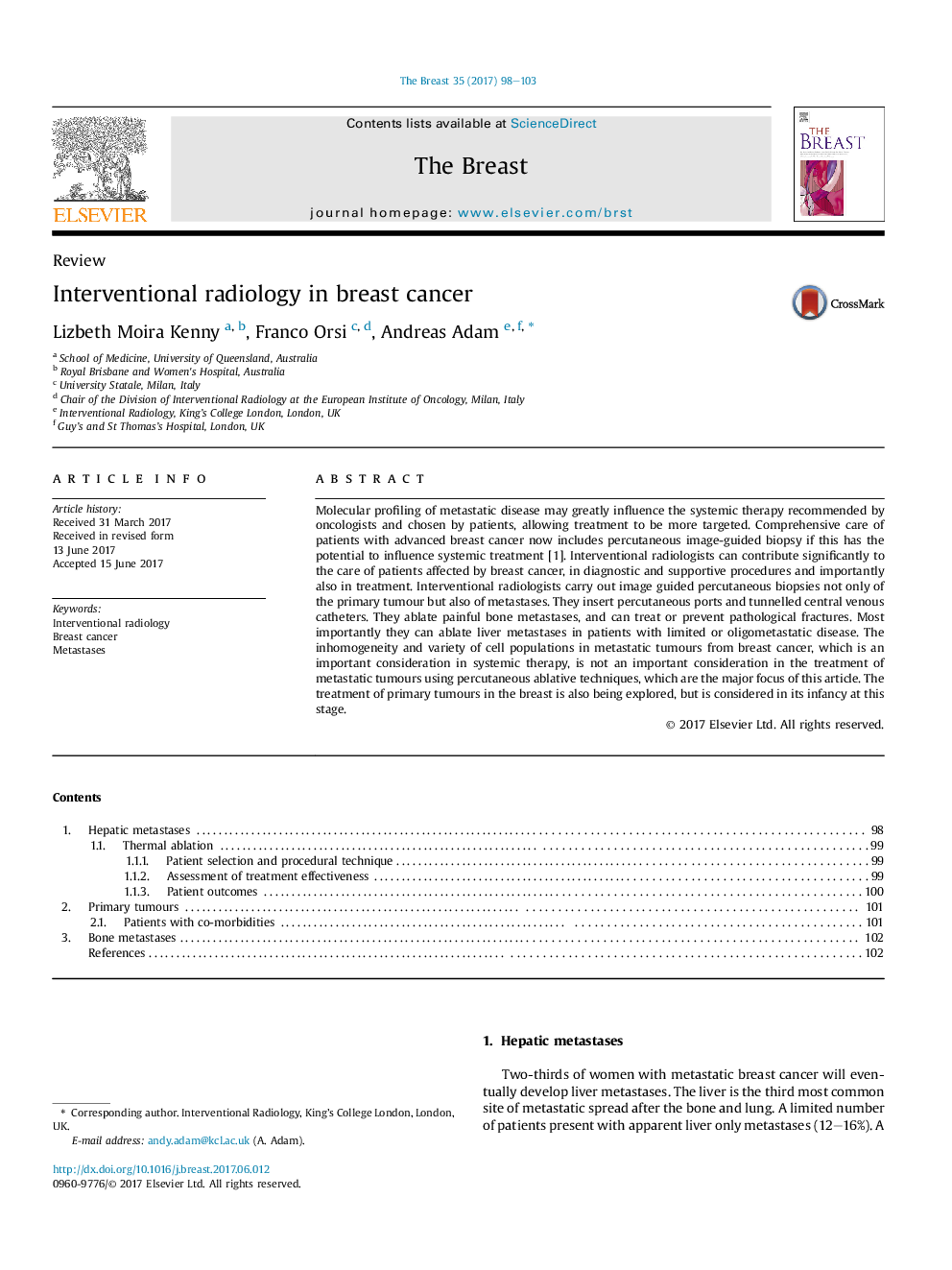| Article ID | Journal | Published Year | Pages | File Type |
|---|---|---|---|---|
| 5692474 | The Breast | 2017 | 6 Pages |
Abstract
Molecular profiling of metastatic disease may greatly influence the systemic therapy recommended by oncologists and chosen by patients, allowing treatment to be more targeted. Comprehensive care of patients with advanced breast cancer now includes percutaneous image-guided biopsy if this has the potential to influence systemic treatment [1]. Interventional radiologists can contribute significantly to the care of patients affected by breast cancer, in diagnostic and supportive procedures and importantly also in treatment. Interventional radiologists carry out image guided percutaneous biopsies not only of the primary tumour but also of metastases. They insert percutaneous ports and tunnelled central venous catheters. They ablate painful bone metastases, and can treat or prevent pathological fractures. Most importantly they can ablate liver metastases in patients with limited or oligometastatic disease. The inhomogeneity and variety of cell populations in metastatic tumours from breast cancer, which is an important consideration in systemic therapy, is not an important consideration in the treatment of metastatic tumours using percutaneous ablative techniques, which are the major focus of this article. The treatment of primary tumours in the breast is also being explored, but is considered in its infancy at this stage.
Related Topics
Health Sciences
Medicine and Dentistry
Obstetrics, Gynecology and Women's Health
Authors
Lizbeth Moira Kenny, Franco Orsi, Andreas Adam,
